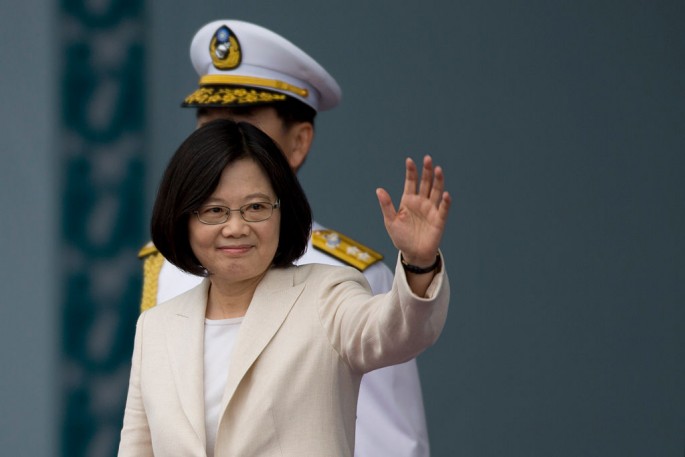China is tightening its grip on Taiwan as the island’s first-ever female president Tsai Ing-wen takes the highest seat in the land after an eight-year rule by the mainland-backed Kuomintang Party.
In a report published on Tuesday, the Asia Times noted how Taipei is "brimming" with hope and "a sense of departure" from the previous government as the country inaugurated its first female president.
According to the outlet, Tsai's win during the previous election can be considered one of the most historic moments for Taiwan because, aside from being the first Chinese-speaking woman to earn the highest position in the government, she is also the first president supported by a pro-independent party.
However, that is the exact reason why the Chinese mainland is scrambling to tighten their grip on the island with actions that gradually limit Taiwan's connection to the world as it raises a red flag on Tsai's refusal to acknowledge the 1992 consensus that was protected by the previous KMT administration.
Why the People Chose Tsai Ing-wen
While it may already be obvious, the people of Taiwan are finally ready to achieve independence from the mainland, who continues to assert that the island is merely a wayward province and is not a nation in itself.
As a former university law professor, Tsai is well versed in loopholes that could deter China's hold on the island.
According to the Asia Times, she began her work as the new president of Taiwan by asking for support from the United States during the second leg of negotiations on the Trans-Pacific Partnership (TPP) agreement.
Her prime minister had also made a similar defying move by ordering the judiciary to drop all criminal cases against 120 college students who allegedly stormed and illegally occupied government establishments in 2014 in protest of former President Ma Ying-jeou's mainland policy.
What China Is Doing About It
These actions did not go unnoticed and were definitely not unanswered by the mainland, who recently declared a more stern inspection of oranges from Taiwan for "health and safety concerns."
According to analysts from the South China Morning Post, this latest move is among the series of actions from China that indicate that a red flag is already raised on Tsai's administration.
Analysts see this and other actions from Beijing as a carrot-and-stick strategy as they monitor Taiwan's new government to determine whether or not it will make any significant action against the mainland's "one China policy."
"So far, Beijing has yet to take a harsh stance against the Tsai government and is still watching Tsai's words and deeds closely before making any decision on what to do with her and her government," Taipei-based National Taiwan University political science professor Philip Hsu Szue-chin explained.



























